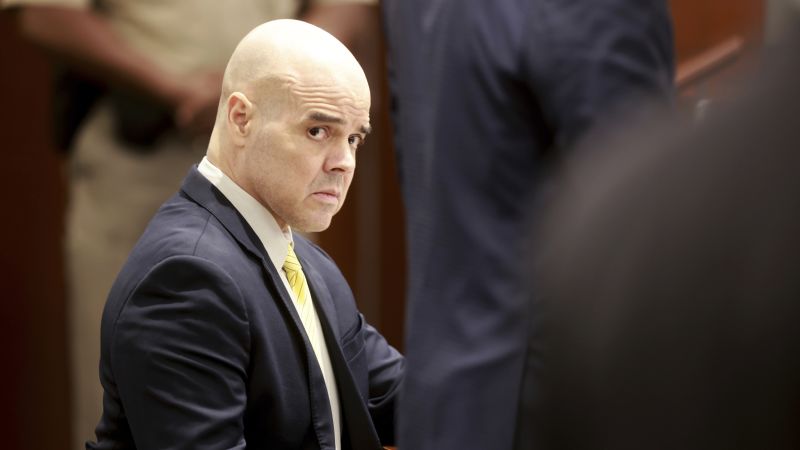The murder trial of Robert Telles, accused of killing Las Vegas Review-Journal investigative reporter Jeff German, presented a challenging dilemma for the newspaper. Telles, a former public administrator, faced charges in relation to the fatal stabbing of German, following the journalist’s extensive coverage of turmoil and harassment allegations within Telles’ office. Telles proclaimed his innocence, potentially facing life in prison if convicted. The Review-Journal, accustomed to covering tragedies, found itself in the unique position of objectively reporting on the trial of a suspect accused of murdering one of its own reporters.
German’s reporting exposed a boss accused of fostering a hostile workplace and engaging in inappropriate behavior, leading to Telles losing his Democratic primary race and facing an end to his public office career. After German’s murder, the newspaper’s reporters embarked on an intensive investigation to find his killer and continue his work. The team delved into Telles’ past, uncovering instances of toxic and harassing behavior, including 911 calls from his ex-wife and previous arrests on domestic battery charges. The publication sought to protect German’s privacy and sources while providing crucial information to authorities during the investigation.
As Telles’ trial commenced, the Review-Journal continued its comprehensive coverage, highlighting German’s career as a fearless investigative journalist who navigated organized crime figures in Sin City. The newspaper established a memorial on its website dedicated to German’s work and reported the trial’s opening statements prominently. Telles’ attorney acknowledged German’s reputation for seeking the truth, while Telles himself admitted to lying about his relationship with the journalist. The newspaper refrained from commenting on the trial, relying on its reporting to convey the unfolding events.
Journalists face the difficult task of reporting on tragedies involving their own colleagues, requiring a delicate balance of professionalism and emotional resolve. The Review-Journal’s coverage of German’s murder is indicative of newsrooms’ ability to prioritize reporting while processing personal grief. The newspaper, along with other newsrooms impacted by trauma among their staff, has navigated challenging circumstances to deliver critical journalism. Examples include The Wall Street Journal’s campaign for the release of a detained reporter and The Washington Post’s coverage of Jamal Khashoggi’s disappearance and murder.
As journalists continue to cover the deaths of their peers, the industry acknowledges the inherent risks and emotional toll of the job. The commitment to reporting on difficult topics, such as colleague murders, underscores the dedication of journalists to uncover the truth and seek justice. Despite the challenges and tragedies faced by newsrooms, the enduring commitment to investigative journalism and storytelling remains unwavering. The profession’s resilience and determination to uphold press freedom and hold power to account reflect the critical role of journalism in society.















